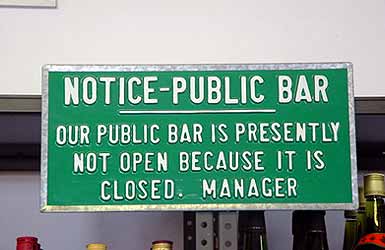Last night Ginger and I spent the evening at Fenway Park watching our Boston Red Sox play the Cleveland Indians. Fenway is one of my favorite places. The nearly century-old park in one of the few not named after a corporation. It’s also one where you have to lean a bit to see around the support beams (as we did last night) and whose seats were built in a time when, well, our seats were smaller. We get to make a couple of trips a year to the ballpark. I look forward the sausage sub with peppers and onions I get from The Sausage King outside the park, the soft serve ice cream served in a mini Sox batting helmet inside, and the chance to sing “Sweet Caroline” (yes, the Neil Diamond song) with 36,000 of my closest friends in the middle of the eighth inning.
Good times never seemed so good (so good, so good, so good).
Thanks to a friend who works for the Sox, we had tickets last night about thirty rows up behind home plate. Next to me was a guy on two week leave from Afghanistan and his wife; next to Ginger was a guy who made me look small and his almost equally robust friend. Both pairs were on their drinking game. As one of my college pals used to say, “It’s all in the rhythm.” I went to get ice cream for Ginger and me. When I came back, one of the guys said, “They gave you ice cream and not beer? What happened — did you spell it wrong?”
I’ve been a Sox fan since I was a little kid, long before I ever thought I would get to live here. One of the favorite memories of my childhood was the 1967 World Series. My family was on leave from the mission field and we were living in Fort Worth, Texas. I was in sixth grade at Hubbard Heights Elementary School. The Sox were in the Series, back in the days of Carl Yastrzemski, and back in the days when television didn’t rule the world: there were still afternoon games. As I was leaving for school, my dad said, “Would you like me to write a note so you can come home early and we can watch the game together?” That was one of his best moments as a dad. We sat on the couch together for all the games and I had my heart broken as the Sox lost.
I sat on the couch here in Marshfield two seasons ago with Ginger and the pups and watched the Sox come back to beat the dreaded Yankees (hard to type that word without putting the word “suck” behind it) and then go on to win the World Series for the first time in eighty-six years. One of the big reasons was David Ortiz, or Big Papi as he is known to us here in Red Sox Nation.
Papi is a man who loves to play the game. His homeruns find their power in the sheer joy he finds in swinging for the fences. From his first at bat, we chanted “M-V-P” when he came to the plate. When we got to the bottom of the ninth, down by two runs with two men on base and his turn at bat, the moment felt destined more than scripted. On a steamy, moonless, windless night, we were all a part of a perfect moment. Everyone was on their feet, cheering and clapping. The first pitch was ball and another ball followed. With each pitch, the volume and expectancy intensified. Four times already this season, Ortiz had won the ga me in walk off fashion; we knew he would do it again.
me in walk off fashion; we knew he would do it again.
And he did. He crushed the ball into straight away center field – I’m guessing 430 feet – and we went wild. Cora crossed the plate, and then Youkilis. Halfway down the third base line, Papi tossed his batting helmet as he usually does and then hopped up and down on home plate, his teammates surrounding him with all the joy of a sandlot victory. We were cheering so loudly we could only feel the bass line of “Dirty Water” as it played underneath our exultation. We came from behind again. The Yankees would stay in second place. We learned again you gotta believe in The Olde Towne Team.
One of the other cooks at the Red Lion Inn is Salvadorian. He calls me Papito – little Papi. I don’t know if means to draw the connection with Big Papi, but that’s the way I choose to take it and hope that I, too, can tap into the sheer joy that powers the man with a grin as big as the Green Monster.
I don’t know what it’s like to be for one of the other teams in baseball. I think one of the reasons I find such an affinity with the Sox is the eighty-six years without winning the Series. Even when we couldn’t win, it was still hard to get tickets to a game. Being a Sox fan meant we knew it would not always be this way. And it wasn’t. We finally won the Series; now we can have some fun.
Don’t get me wrong. I want to win the Series again this year and we have a team that could do it. In my ongoing tradition of taking poets a little out of context, I turn to words from Rumi:
Out beyond ideas of wrongdoing
and rightdoing there is a field.
I’ll meet you there.
When the soul lies down in that grass
the world is too full to talk about.
I know where that field is; I was there last night.
Oh, Boston! You’re my home.











